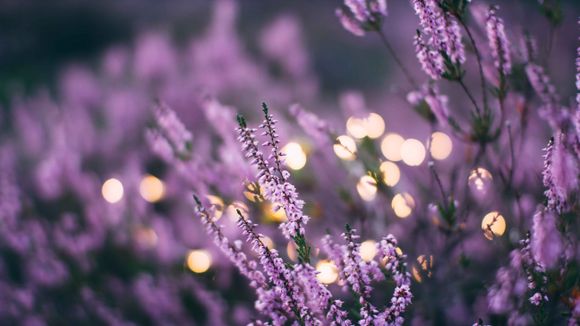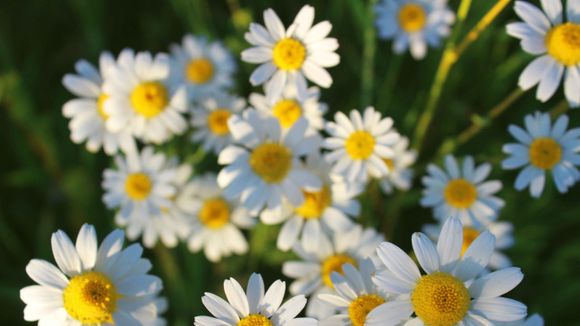Natural remedies
1. St. John's Wort (Hypericum perforatum)
St. John's Wort, scientifically known as Hypericum perforatum, is a perennial plant with yellow flowers, native to Europe but found worldwide today. This herb is well-known for its mood-boosting properties and has been used for centuries to treat mental health conditions, particularly depression. The active ingredients hypericin and hyperforin are believed to play key roles in its antidepressant effects.
Recipe: St. John's Wort Tea
Boil one cup of water and pour it over one to two teaspoons of dried St. John's Wort flowers. Allow it to steep for 10 minutes, strain the flowers out, and your mood-enhancing tea is ready to sip.
2. Chamomile (Matricaria recutita)
Chamomile, or Matricaria recutita, is a daisy-like plant known for its calming and anti-anxiety properties. Widely used in teas and aromatherapy, chamomile helps to soothe the nervous system and promote a sense of tranquility.
Recipe: Chamomile Lavender Sleepy-Time Tea
Add 2 tablespoons of dried chamomile flowers and 1 tablespoon of dried lavender (Lavandula angustifolia) to 2 cups of boiling water. Let it steep for 5-10 minutes, strain, and enjoy before bedtime to promote relaxation and better sleep.

Photo by Daiga Ellaby on Unsplash
3. Lavender (Lavandula angustifolia)
Lavender, or Lavandula angustifolia, is a flowering plant in the mint family and is cherished for its aromatic, purple flowers. Known for its calming and soothing effects, lavender is often used in aromatherapy to reduce anxiety, stress, and insomnia.
Recipe: Lavender Essential Oil Diffuser
Just add a few drops of pure lavender essential oil to your home diffuser. Inhaling the fragrance will help to relax and calm your mind.
Anticancer Properties
Notably, some of these mood-elevating plants also possess potential anticancer properties:
- St. John’s Wort (Hypericum perforatum): Some research indicates that hypericin, an active compound in St. John's Wort, may have anticancer properties. However, more research is needed in this area.
- Chamomile (Matricaria recutita): Chamomile has been associated with a reduced risk of specific types of cancer, including breast and digestive tract cancers, due to its antioxidant properties.

Photo by Yaroslava Stupnytska on Unsplash
Question and Answers
Q: Can these herbs replace prescribed medication for mood disorders or depression?
Q: It's essential to note that while these herbs can help manage mood and depression symptoms, they should not be used as a replacement for prescribed medication without consulting your healthcare provider.
Q: Are there any side effects of consuming these herbs?
Q: While generally considered safe, some people might experience allergic reactions, gastrointestinal discomfort, or other side effects. Always start with small doses and monitor your body's responses.
Q: Can I grow these herbs at home?
Q: Yes, you can grow these herbs at home, given the appropriate conditions. This could be a therapeutic hobby as well as a source of fresh herbs.
Q: Is there a best time of day to consume these herbs for maximum effectiveness?
Q: While there's no definitive "best time," it often depends on the herb and its effects. For example, relaxing herbs like chamomile or lavender might be best consumed in the evening.
Q: Can I combine these herbs?
Q: Yes, some of these herbs can be combined for enhanced effects, like chamomile and lavender. However, always ensure to research or consult a professional before combining herbs.
Your mental health matters. It's crucial to look out for signs of mood changes or depression and not dismiss them as merely "the blues." Always consult a healthcare provider when in doubt, but don't forget the power of nature's bounty to support your wellness journey. It's more than just about feeling good; it's about whole-body health.









